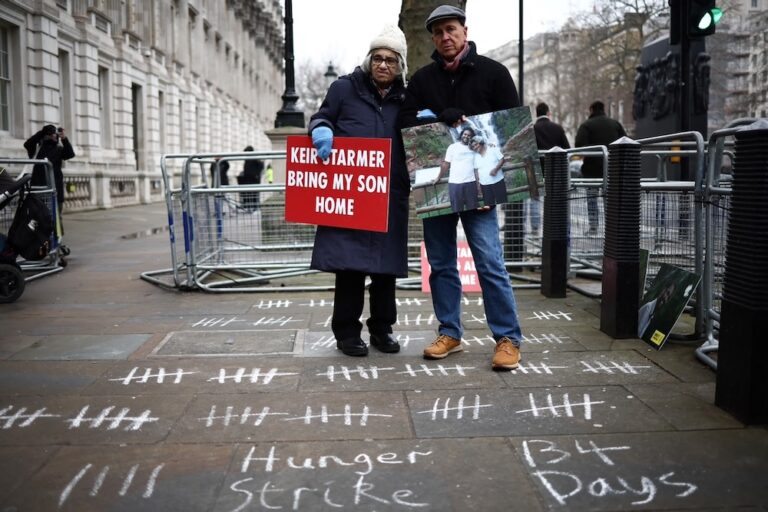(EOHR/IFEX) – The following is a 25 February 2003 EOHR press release: Cairo, 25 February 2003 EOHR’s Report on the Impact of the Emergency Law on Human Rights Situation in Egypt (1992-2002) The Egyptian Organization for Human Rights (EOHR) issued today its first report for the year 2003, entitled “The impact of the emergency law […]
(EOHR/IFEX) – The following is a 25 February 2003 EOHR press release:
Cairo, 25 February 2003
EOHR’s Report on the Impact of the Emergency Law on Human Rights
Situation in Egypt
(1992-2002)
The Egyptian Organization for Human Rights (EOHR) issued today its first report for the year 2003, entitled “The impact of the emergency law on the human rights situation: 1992-2002”. This report is issued following the 23 February 2003 decision by the Peoples’ Assembly to extend the state of emergency for three more years until 2006. The state of emergency has been in force in Egypt since the assassination of El Sadat in 1981 and has been continuously extended for almost 25 years.
It is worth noting that the state of emergency was supposed to end in May 2003. The executive authorities are justifying the decision to extend the emergency law on two grounds: its necessity given the current international situation and the combating of terrorism. EOHR rejects these arguments. Dealing with the current international situation requires the implementation of democracy and public freedoms and ensuring civil participation to confront political, economic and cultural challenges. Moreover, Egypt has not witnessed any terrorist activity since 1997, thus there is no justification for a state of emergency based on terrorism.
Since the establishment of EOHR in 1985, the organization has highlighted the dangers of the emergency law and its negative impact on human rights in Egypt. The emergency law grants the executive broad powers to impose restrictions on the freedoms of assembly, movement and residence. It allows wide powers of arrest, search and detention without the protections contained in the Criminal Procedures Code. Furthermore, the law gives the military ruler the power to issue decrees that have the effect of law. This has resulted in a parallel system of exceptional courts that are permitted to violate fair trial standards.
In this regard, EOHR issues this report in order to highlight the crisis in the human rights situation in Egypt due to the persistence of the state of emergency. This report is divided into five sections:
First: The emergency law and human rights in Egypt.
Second: Violation of the right to a fair and impartial trial.
Third: Restrictions on freedom of opinion and expression under the emergency law.
Fourth: Violation of the right to peaceful assembly.
Fifth: Restrictions imposed on the right to participate in public affairs.
In addition, EOHR presents some recommendations and the report includes annexes showing violations that have been committed under the emergency state from 1992-2002. For example, the number of civilians who were referred to a military judiciary and the number of journalists and activists who were referred to state security courts because of their opinions is highlighted. The report also includes examples of the impact of the emergency law on the right to peaceful assembly, according to EOHR’s field work data.
By issuing this report, EOHR seeks to highlight the contradiction between human rights and the state of emergency. The organisation calls for the promotion and support of efforts to create a democratic atmosphere based on respect for citizens’ rights and basic freedoms.


